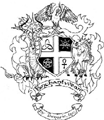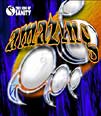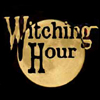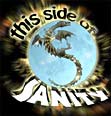True nard is a plant and an herb.

picture of jatamansi (true nard) courtesy of The Healing Gardens |
- botanical information
- origin
- history
- part used
- magick correspondences and uses
- ancient myths and beliefs
- health care
- Ayurvedic herbalism
botanical information:
Botanical name: Nardostachys jatamansi
Common name: muskroot, nard, nardin, true nard
Ayurvedic name: jatamansi
Use the botanical name when ordering seeds (bulbs, etc.) or when looking up information in the library. Common names vary by nation, culture, and region, and sometimes the same common name is applied to different plants.
Family: Valerianaceae (valerian)
origin:
Origin: Himalayas (China, India, and Nepal)
history:
History: Luxury oil imported from India to ancient Egypt, Near East, and the Roman Empire. Nard oil was used as the primary ingredient in the perfume nardinium.
History: According to Book 18 of Homer’s Illiad, nard oil was used by Achilles to perfume the body of Patroklos.
History: Pliny mentioned twelve (12) species of nard in his Natural History.
part used:
Part Used: root and oil.
magickal correspondences and uses:
Magickal substitutions: Rosemary usually may be safely substituted for any herb in magick spells and rituals. Roses may safely be substituted for any flower.
ancient myths and beliefs:
According to Islam, the powdered root of nard was the forbidden fruit that Adam ate in the Garden of Eden.
Nard is one of the Eleven Herbs used for incense in the Holy Temple in Jerusalem. Nard is mentioned in the Song of Solomon (a Jewish love poem), chapter 1, verse 12 and chapter 4, verse 13.
In Christian mythology, a woman annoints the head of Jesus with nard. Also Mary, the sister of Lazarus, annoints the feet of Jesus from an alabaster jar filled with nard.
asdf
asdf
health care uses:
Health Notice: Attempting to be an amateur doctor is potentially dangerous to your health. This web page is not professional medical advice. Nothing on this website should be considered as a substitute or replacement for professional medical advice. Persons should seek the advice of qualified health providers. Self-medication should not be used as a substitute for professional medical care. Please confirm all self-medication with your doctor or health care professional. See the article on healing for recommended healers.
Ayurvedic herbalism:
Ayurvedic Doshas: VPK= Pitta balanced; Kapha balanced; Vata balanced
Part Used: root
According to Dr. Ram of The Healing Gardens, “JATAMANSI-(Nardostachys jatamansi): Relaxes body, promotes quality sleep, calms mind, improves memory especially when used in conjunction with herbs such as Aswagandha.”
Jatamansi is used in Dr. Ram’s Sleep Solution, an Ayurvedic herbal sleep aid.
For more information, see the article on Ayurvedic medicine.
Some herbs may be poisonious under some conditions. Exercise appropriate care.
Wild gathering: Avoid wild gathering. Some plants are endangered species. Some plants can be toxic just by touch. Even experts can make deadly misidentifications of wild plants. Please grow your own herbs in your own goddess garden (or window boxes).
next herb
herbs |
||
| previous plant |
next plant |














